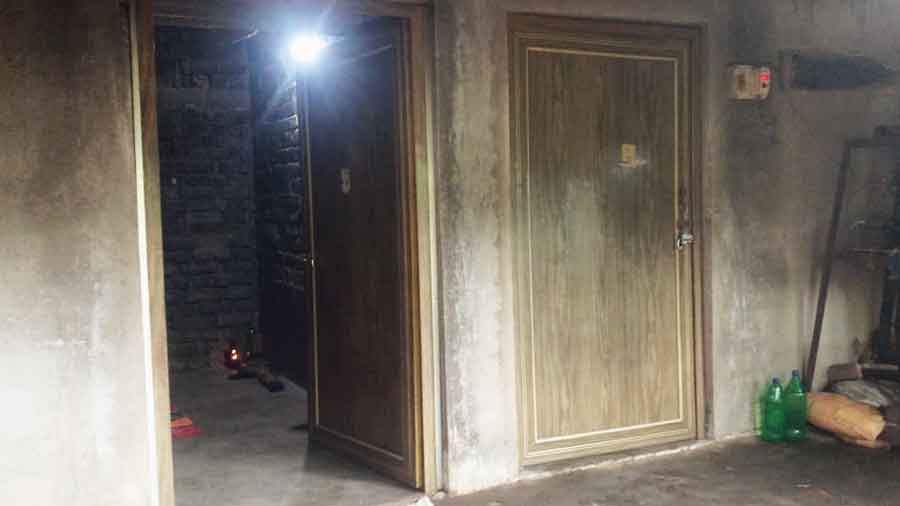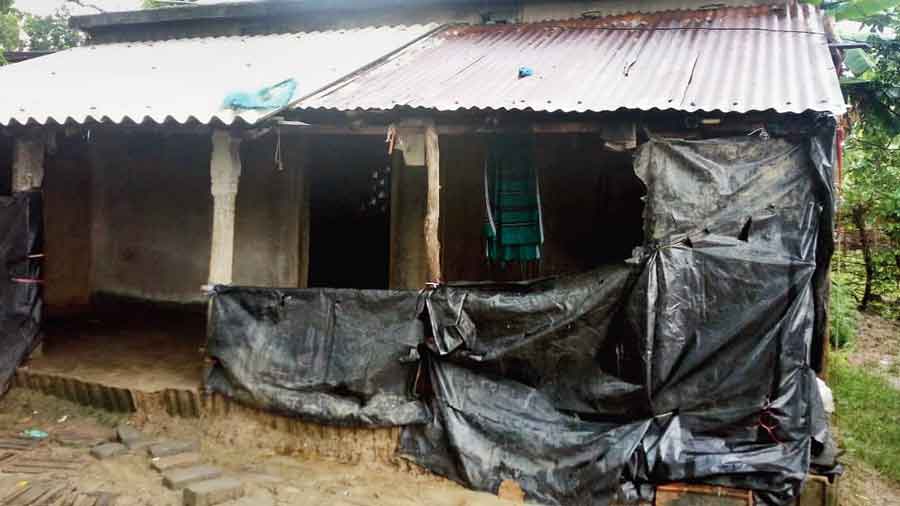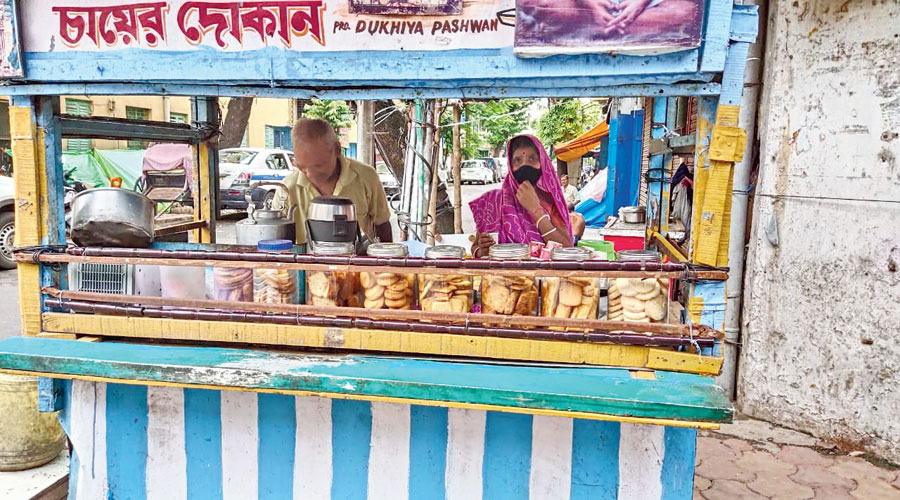A hawker on trains and his wife in Odisha have committed suicide after their income dried up because passenger trains are not running amid the pandemic and creditors had been breathing down their necks.
The deaths of Kashinath Raula, 53, and his wife Kanaka, 45, in Balasore district have also brought to the fore how unscrupulous elements had infiltrated a successful and well-meaning government plan to promote financial self-reliance.
Kashinath, who used to sell boiled grams and peas (ghughni) in trains between Balasore and Rupsa stations, and Kanaka died after consuming poison at their home in Pudadiha village on Saturday. The couple had taken loans totalling Rs 2.5 lakh from three women’s self-help groups to expand their house and the lenders had allegedly been mounting pressure on them to repay.
Social activists and government officials said that several self-help groups were running illegal money-lending operations with the loans they take to set up small businesses.
The government facilitates the grant of loans at subsidised rates to self-help groups so that they can run small businesses — from selling food items to rearing animals to running poultries — with the primary aim of fostering economic independence, especially among women. However, some groups had formed a nexus with private micro-finance companies to start a money-lending trade charging exorbitant interest rates.
Sub-inspector Narahari Mahalik of Rupsa police station told this newspaper: “Kashinath used to hawk food items in trains. As passenger trains are not running because of the pandemic and the restrictions, he had become jobless. He had earlier taken loans totalling Rs 2.5 lakh to build two rooms at his house. Left with no money during the pandemic, he had borrowed some more to run the family. He had been unable to pay the monthly instalments and had been under constant pressure over loan repayment. He could not take the strain anymore and he and his wife consumed poison.”
The officer said the accused members of the self-help groups would be called for questioning. “However, the investigation is going slow at the moment as most of our colleagues, including the inspector, are down with Covid,” Mahalik said.
Neighbour Lambodar Jena said Kashinath used to earn Rs 600 to Rs 700 a day by selling ghughni on trains. “Last year, he had renovated his house and also added two rooms. He had taken loans for this. But when the lockdown was suddenly announced (on March 24), he came under severe financial stress. He had again borrowed money from the self-help groups to keep his family going. He had not been able to pay loan instalments for six months,” Jena said.
Sources said that some members of the three women’s self-help groups had come only last week and threatened to evict Kashinath and his wife from the house if they failed to repay the loans.
Jena said Kashinath had approached his two sons, a hawker and a labourer, for help but they could not do anything as they too had no income.
Kashinath’s elder son Babula Raula said: “We are needy people. I am also a hawker on trains. I don’t have any income now and have a son and a daughter to look after. I had told father that I was helpless. My younger brother is also having a tough time. But we had never imagined that our parents would commit suicide.”
Babula said he had lodged a police complaint against the three self-help groups.

The death of Kashinath Raula has also brought to the fore how unscrupulous elements had infiltrated a successful and well-meaning government plan to promote financial self-reliance Telegraph picture
Social activist and Congress leader Sudarshan Das told The Telegraph: “There are many self-help groups working in the rural belt in Balasore district. Private micro-finance organisations are using self-help groups to extend loans to needy people at high interest rates. When the debtors fail to repay, all kinds of pressure tactics are used. I have already lodged a case. Now we are going to meet the victims’ family members.”
A senior Odisha government official said many micro-finance groups in rural areas of Balasore, Bhadrak and some other parts of the state had spread their network with the help of self-help groups. The micro-finance outfits give money to these groups, which in turn lend cash to people and earn commission from repayment amounts.
“Sometimes, the micro-finance organisations charge interest rates as high as 24 per cent. We have been educating people about taking loans from banks, which lend at 9 per cent interest. We will look into this particular case (in Balasore),” the officials said, requesting not to be identified.
Sources said the Odisha finance department would inform the Reserve Bank of India about the activities of the micro-finance groups.
Odisha has around 6 lakh self-help groups.











